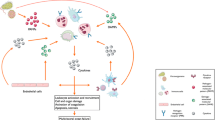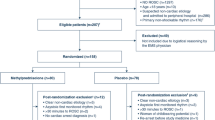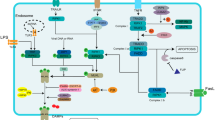Abstract
Granulocyte colony-stimulating factor (G-CSF) is the cytokine that is critical for polymorphonuclear neutrophilic granulocyte (PMN) production as well as being a potent agonist of PMN activation. We have recently reported that in the lung and the liver of rats resuscitated after hemorrhagic shock (HS) G-CSF mRNA expression is induced. It is not known if both phases of HS, the ischemic and the reperfusion phase, are required for G-CSF mRNA induction. The present study was designed to test the hypothesis that the upregulation of G-CSF mRNA expression is the consequence of HS followed by resuscitation and that ischennia alone is insufficient to induce G-CSF mRNA expression in the affected organs. Male Sprague-Dawley rats were subjected to resuscitated and unresuscitated shock protocols of varying severity. Control animals were subjected to anesthesia and all surgical preparations except for hemorrhage. Lungs and livers were isolated and their RNA extracted. Using semiquantitative reverse trans criptase-polymerase chain reaction (RT-PCR), we demonstrated that G-CSF mRNA was induced in the lung and liver of shock animals above the level observed in control animals. Upregulation of G-CSF mRNA relative to controls occurred only in animals undergoing resuscitated HS and not in ones subjected to unresuscitated HS. These results indicate that G-CSF production specific for the hemorrhage component of shock is dependent on resuscitation. As a consequence, the production of this cytokine may be decreased through modifications in the resuscitation protocols.
Similar content being viewed by others
References
Cotran RS, Robbins SL, Kumar V (1989) Inflammation and repair. In: Robbins SL (ed) Pathologic basis of disease, 4th edn. Saunders, Philadelphia, pp 39–71
Dale DC, Liles WC, Summer WR, Nilson S (1995) Granulocyte colony-stimulating factor — role and relationship in infectious diseases. J Infect Dis 172:1061–1075
Hierholzer C, Kelly E, Billiar TR, Tweardy DJ (1996) Granulocyte colony-stimulating factor (G-CSF) production and neutrophil activation in hemorrhagic shock. Langenbecks Arch Surg (Suppl 1):15–19
Hierholzer C, Kelly E, Lyons V, Roedling E, Davies P, Billiar TR, Tweardy DJ (1996) Granulocyte colony-stimulating factor (G-CSF) instillation into the lung results in neutrophil recruitment and lung damage. Surg Forum 47:118–120
Jaeschke H (1991) Reactive oxygen and ischemia/reperfusion injury of the liver. Chem Biol Interact 79:115–136
Kawasaki ES (1990) Amplification of RNA. In: Innis MA et al. (eds) PCR protocols: a guide to methods and applications. Academic Press, New York, pp 21–27
Marcinkiewicz J, Grabowska A, Chain B (1995) Nitric oxide up-regulates the release of inflammatory mediators by mouse macrophages. Eur J Immunol 25:947–951
Nathan CF (1989) Respiratory burst in adherent human neutrophils: triggering by colony-stimulating factors CSF-GM and CSF-G. Blood 73:301–310
Tan S, Yokoyama Y, Dickens E, Cash TG, Freeman BA, Parks DA (1993) Xanthine oxidase activity in the circulation of rats following hemorrhagic shock. Free Radic Biol Med 15:407–414
Yokota J, Chiao JJ, Shires GT (1992) Oxygen free radicals affect cardiac and skeletal membrane potential during hemorrhagic shock in rats. Am J Physiol 262:84–90
Author information
Authors and Affiliations
Rights and permissions
About this article
Cite this article
Hierholzer, C., Kelly, E., Billiar, T.R. et al. Granulocyte colony-stimulating factor (G-CSF) production in hemorrhagic shock requires both the ischemic and resuscitation phase. Arch Orthop Trauma Surg 116, 173–176 (1997). https://doi.org/10.1007/BF00426067
Received:
Issue Date:
DOI: https://doi.org/10.1007/BF00426067




